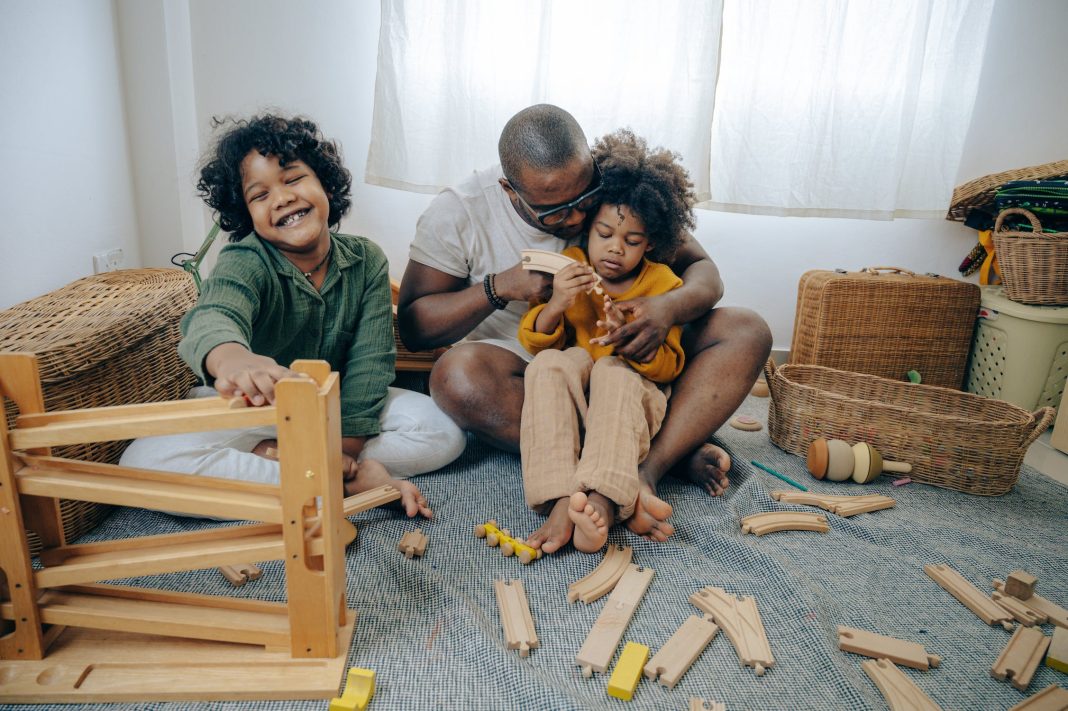I remember the lockdown of 2020 almost like it was yesterday. I was using Twitter a lot and was speaking to my friends via several Whatsapp voice notes while planning how to graduate in the midst of a pandemic.
2020 is also significant because it was one year I clearly remembered the events of the Father’s Day celebration.
I remembered how it played out on Nigerian Twitter when a woman used that opportunity to speak on how Father’s Day should be a day for the world to reflect on how fathers have used their positions to be agents of trauma and harm in their children’s lives.
Like most things on Twitter regarding men and women, it spiralled into a long argument that was toxic at best and insultive at worst with feminist women being on the receiving end of the vilest comments I’ve ever witnessed. One of the insults that was directed at women’s advocates and feminists was that the only way women could have become feminists must have been due to them having “daddy issues”.
They also said that true women who had received love from their fathers would be nowhere near feminist thoughts and beliefs.
Let us unpack all of that. It is indeed true that absentee fathers and neglectful fathers can lead to what is termed “daddy issues” in women. Daddy issues refers to the unprocessed trauma that a woman has due to a negative relationship with her father who may even be around. Though not all the time, it can show up in young women searching for father figures by going into relationships with much older men which can see them being taken advantage of.
At the same time, there are women whose feminism was made stronger because their fathers encouraged them to be confident and to never settle for less in their relationships with men.
Even more, there are women with a mix of daddy issues and feminism. Why do I say this? There are men who are good fathers but bad husbands. They teach their daughters to be everything that they actively deny their wives from being. These girls may resent their fathers because of what they saw him do to their mothers.
They may at the same time give him respect because part of their feminism and life achievements could not have occurred without his support. For these sets of girls, they may still have daddy issues however minimal. This is because observing the suffering of their mothers in the hands of a man who gives the best to their daughters can be psychologically torturing and hurtful.
In all of these examples, one thing is clear: The actions, neglect, absence and inactions of a father has a role to play in the way a daughter carries herself. This is especially when the daughter has seen examples of what a good and supportive father should be.
However, I am yet to understand why women are the ones who have to bear the brunt and blame of their father’s actions. This is especially when there are actually women who are not feminists and women’s advocates in spite of them acknowledging the misery they encountered in the hands of their fathers as children.
Once more, it is a clear example of women being blamed for the actions of men. This is even if those men are the ones who have hurt them in a manner that they may never heal fully from.
What is even wrong with women observing the emotionally and physically abusive actions of their fathers and deciding to be feminists who raise better young boys? Why is society obsessed with blaming women for behaviours that they played no part in enabling?
Speaking with Kendra, she explains that daddy issues has long term effects and blaming women is counterproductive.
In her words: As someone who is still trying to work my way around a severe parent wound, daddy issues is one of the most long lasting trauma with the most severe issues.
We have to work our way everyday around a general distrust because we cannot seem to relax. The person that was supposed to be there to teach us how to truly trust that other gender was not present to make that happen. Sigh.”
She went on to say: “It’s men that check men. Unfortunately, men are not properly being chastised for leaving their families and starting a whole new life. Men don’t check these excesses and when we [as women] try to do so especially during vulnerable moments like Fathers’ Day, we are seen as mean because heyyy it’s Father’s Day relax lol.
In my opinion, women are blamed as bitter because they are the ones that have to sit through primary care; they carry all the resentment while this man goes off with a new woman and that resentment could eventually build up to bitterness which is spread around her children.”
For Tinuade, she said that her own daddy issues has affected her romantic relationships with men. To quote her: “An ex told me I will have to fix things with my father for him to consider marriage with me. He went further to say that he cannot marry a woman that does not have a good relationship with her father.
Like, blame me for my father’s mistakes and get me to also fix it. The world is not fair.”
She went on to add: “I’m going to be honest with my own personal experience.
My father never wanted kids – this my mom shared with me when I was a teenager – but my mom went ahead to have three kids for him, they separated after 10 years. Consequently, he was irresponsible towards his kids – me. My father is comfortably ohk but he never cared for us, till date. I blamed both my mother and father. I have both father and mother issues.”
The foundation of sexism is shifting blame onto women and girls even when they are not enablers.
Blaming women for the trauma they face at the hands of neglectful fathers is one of the most dastardly acts of patriarchy.
Rather than blame women for their father’s actions, we need to create safe spaces where all women would speak on their parental relationships without fear of being shamed for another person’s actions.

Angel Nduka-Nwosu is a writer, journalist and editor. She moonlights occasionally as a podcaster on As Angel Was Sayin’. Catch her on all socials @asangelwassayin.


